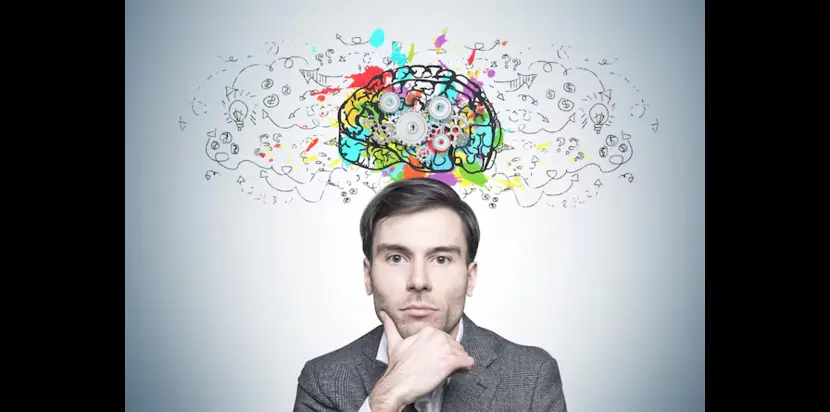INTRODUCTION
Emotional Intelligence (EI), a word that has received a reputation in recent years, refers to the ability to understand, regulate, and efficiently explicit one’s emotions, in addition to understanding and affecting the feelings of others. This concept underlines emotional consciousness in opposition to traditional intelligence, based on cognitive features and the right way to manage it in interpersonal and professional activities throughout life. In this elaborate article, we investigate emotional intelligence, its types, and its importance toward leadership and the workplace.
What Is Emotional Intelligence?
Emotional intelligence is broadly characterized as recognizing, comprehending, and the use of one’s emotional states—undoubtedly, with the ability to empathize with others—in the context of performing diverse cognitive tasks and defusing struggle. Daniel Goleman, a well-known psychologist who popularised the idea, diagnosed five key additives of emotional intelligence:
- Self-Awareness: The capacity to apprehend and recognize one’s feelings and their effect on thoughts and behaviour.
- Self-Regulation: The potential to control or redirect disruptive emotions and impulses and adapt to converting situations.
- Motivation: Relentless passion for work transcending money and status and driven by inner ambition to achieve goals.
- Empathy: Knowing the emotional drives of others and how to react to them appropriately.
- Social Skills: The ability to handle relations and networks through effective interaction that finds mutual grounds for communication.
Read More – Unlocking Success with Behavioral Training in India
Types of Emotional Intelligence
Understanding the varieties of emotional intelligence can give deeper insights into how it functions and can be applied to diverse contexts. There are, therefore, three types of emotional intelligence, which are:
- Intrapersonal Emotional Intelligence: This includes self-recognition and self-law. It includes recognizing one’s emotional states, comprehending how they affect oneself, and controlling them efficaciously.
- Interpersonal Emotional Intelligence: This consists of empathy and social abilities. It involves expertise in others’ emotions, developing healthful connections, and dealing with social interactions efficaciously.
Emotional Intelligence in Leadership
Emotional intelligence is a key component in leadership. A good leader must be inspiring and stimulating to one’s coworkers, graceful under stress, and, should be able to create a positive work environment. Here are a few ways in which emotional intelligence manifests in leadership:
- Empathy in Leadership: It will make leaders empathetic towards their team members, building strong relationships with them, understanding the team’s needs, supporting them suitably, and rendering them loyal and trustworthy.
- Self-Regulation: Leaders who manage their emotions effectively are inwardly at ease with themselves and thus can handle pressure with calmness, making reasonable decisions. They would be less prone to rash behaviours and more likely to gauge the wider impact of their actions.
- Effective Communication: A leader with strong emotional intelligence communicates easily and effectively. The leader ensures that his team understands the goals and expectations of the team. He listens actively and gives constructive feedback.
- Conflict Resolution: Emotionally intelligent leaders have the skills to manage and resolve struggles. They understand the underlying emotions that drive the conflict and work toward mutual gains.
- Inspiration and Motivation: Being inspired and motivated in themselves, emotionally intelligent leaders pass on the same inspiration to their teams to apply their best abilities.
Emotional Intelligence at Work
Employees with high emotional intelligence are generally seen as excellent team players and more flexible with a stress-handling capability. Here’s why emotional intelligence at work:
- It Helps Improve Teamwork: Emotionally able employees work well in the company of their fellows, knowing how to work out interpersonal relationships; hence, they contribute to a brighter and better working environment.
- Augmented Communication: All workplaces deal with efficient communication. Employees with high emotional intelligence can express ideas appropriately and comprehend others’ viewpoints. Thus, fewer miscommunications occur.
- Better Conflict Management: Inevitably, every workplace entails conflicts. Highly emotionally intelligent employees handle the situation smoothly, understanding the emotions and finding amiable solutions.
- Increased Resilience: Work is stressful, but people with high emotional intelligence deal with it, handle it and move on. They stay positive and are self-motivated.
- Enhanced Job Satisfaction and Performance: Job satisfaction increases when employees experience better treatment, which means lower turnover and, therefore, better performance.
Developing Emotional Intelligence
Emotional intelligence is not static but can develop and enhance over time. Some of the ways to boost emotional intelligence incorporate:
- Practice Self-Reflection: Regularly take time to reflect on your feelings and behaviours. Understanding your emotional triggers and styles lets you control them better.
- Improve Communication Skills: Practising active listening and effective communication is good. Look out for non-verbal signals and try to understand the feelings conveyed by the words.
- Improve Empathy: One should view life from another person’s perspective. This may help to identify the emotions of other people and respond appropriately.
- Coping with Stress: One must learn to cope with stress through relaxation methods like mindfulness, deep breathing, or physical exercise. Stress is a key thing that should be taken care of to maintain or strike a balance in emotions.
Conclusion
Emotional intelligence has great applications in both personal life and career. Knowing what emotional intelligence is, knowing its different types, and appreciating its importance in leadership and the workplace will set the tone for personal and professional development. Emotional intelligence enhances interpersonal skills to be good with people, leads effectively, and contributes to a successful working atmosphere. Emotional intelligence remains key to success and well-being as we negotiate through difficult social and professional terrains.
Read More – Essential Influence and Communication Skills for Success in the Workplace






